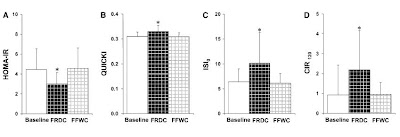As you may know, I have something of an ongoing experiment with dental health. This includes reducing cavities, preventing gingivitis and the receding of gums, and also finding safe ways of whitening teeth.
In previous updates, the main focus has been on the teeth whitening aspect. The last product I purchased was called "Plus White 5 Minute Bleach Whitening Gel". Compared to the supposedly teeth whitening toothpastes out there, this product does seem more effective.
However, in recent months, I've noticed increased sensitivity along the gumline. Specifically, the gums next to two of my upper teeth seem to be the problem. The whitening gel probably has very little to do with it, but it doesn't solve the problem either. In the short term, whitening gels can increase sensitivity, so for the time being, I've turned my focus elsewhere – to preventing caries and improving gum health.
The motivation for this post is that I've struggled with these things my whole life, and despite my various experiments with diet, I've yet to find a proper solution to the problem. When I was a kid, the common explanation was that too much candy and soda was the reason for dental cavities – despite the fact that scientists had already shown that carbohydrates in general give rise to the bacteria that cause caries. So when I got a bit older, I cut back on candy and soda, hoping it would be enough.
Unfortunately, it wasn't. Apart from the Snickers Bars and Coca-Cola I'd occasionally enjoyed that were now gone, my diet remained the same. It took me a long time to discover that all carbs are essentially sugars, that all acidic drinks make the issue worse, and that it's not just Coke and candy that are the problem. You can get cavities just as easily by eating bread and drinking apple juice. Then it was time to get rid of those too.
When I reduced my carb consumption and switched to a more paleo-like diet, my dental health improved, but it still didn't stop me from getting a new cavity every now and then. Furthermore, I knew several people who ate junk food and drank acidic sodas all the time, and yet had never had cavities. Some didn't even brush their teeth every day, let alone floss. When we were kids, my brother and I had very similar diets, and yet I was the only one to get cavities.
These things have led me to believe that genes play a more important part than most dentists would have you believe. Kind of like some people stay thin no matter how much they eat. But, just like in the case of weight loss, your genes do not necessarily determine your fate – it just means you have to know what you're doing. People who don't have the genes for staying naturally thin have to be more careful with what they eat if they want to avoid weight gain. Similarly, people who get cavities easily have to be more careful with dental health.
While keeping your teeth clean by brushing, flossing and chewing gum prevents cavities, I'm wondering whether all the cleaning really strikes the problem at the root (no pun intended). If genetics do play a role, what is it specifically about some people's genes that keeps them from getting cavities, despite their poor dental health habits?
One important factor in cavity formation is saliva. The surfaces of teeth are constantly going through a process of demineralization and remineralization. The balance depends, in part, on salivary flow and the pH of saliva, with the mineral content probably playing a role as well. I know my mouth often feels kind of dry and acidic, which can't be a good thing for remineralization. What is unclear to me is how to affect these things.
There are a million websites out there listing foods that are "acid-forming" or "alkaline-forming", but the classification seems very unscientific. Some list apples as acid-forming because apples themselves are acidic, some list them as alkaline-forming because they claim we should look at what happens after digestion. Here's a quote from one such website:
All foods are "burned" in the body -- more commonly called "digested" -- leaving an ash as the result of the "burning", or the digestion. This food ash can be neutral, acid or alkaline, depending largely on the mineral composition of the foods.
I'm not sure how scientifically valid this theory is in the first place, but I do know that even those who promote the "food ash" theory disagree on which foods leave acid or alkaline ash. One person will tell you plums are acid-forming, while others will tell you they're alkaline-forming. I doubt any of them have actually burned plums and studied the ashes.
So, expect some dental health related posts in the upcoming weeks and months, as I go through some of the papers on the subject. I'm also interested in hearing your comments, especially if you've previously suffered from cavities but managed to find a solution.
Meanwhile, for more information on dental health, see these posts:
Tea, Coffee and Cocoa: All Good for Your Teeth
Dental Health Effects of Green and Black Tea
The Role of Coenzyme Q10 in Oral Health
Whitening Teeth & Healing Gums: In Search of the Perfect Toothpaste











